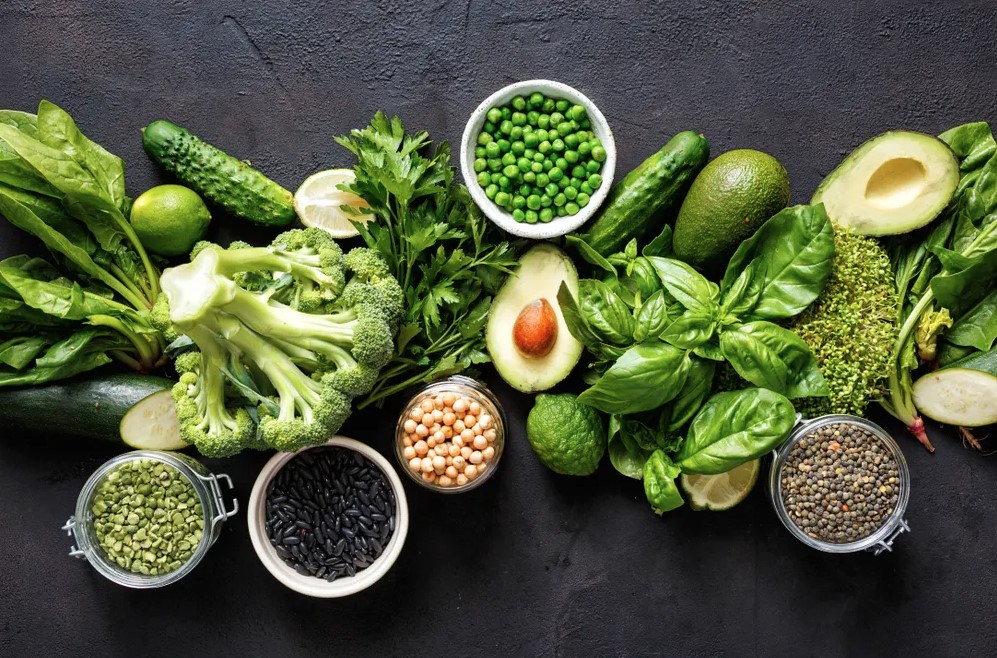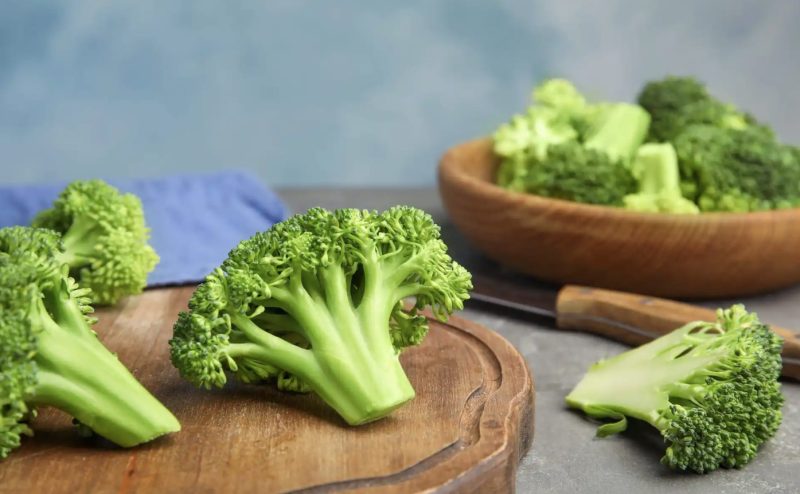 A wide variety of tips for cleansing the liver have been reported for many years. The belief that this organ accumulates toxins has led to implementing diets and remedies that promise to remove waste. However, there is controversy regarding this.
To begin with, one must consider that the liver is the largest internal organ in the human body and is responsible for around 500 functions. Of these, some of the most relevant cover eliminating and neutralizing toxins. In addition, it intervenes in digestion through the production of bile.
That said, we must bear in mind that, under normal conditions, this organ cleans itself on its own because it is precisely its function. In this sense, what is possible is the implementation of healthy habits that contribute to the preservation of their health. Do you want to know more about it? All the details are below.
A wide variety of tips for cleansing the liver have been reported for many years. The belief that this organ accumulates toxins has led to implementing diets and remedies that promise to remove waste. However, there is controversy regarding this.
To begin with, one must consider that the liver is the largest internal organ in the human body and is responsible for around 500 functions. Of these, some of the most relevant cover eliminating and neutralizing toxins. In addition, it intervenes in digestion through the production of bile.
That said, we must bear in mind that, under normal conditions, this organ cleans itself on its own because it is precisely its function. In this sense, what is possible is the implementation of healthy habits that contribute to the preservation of their health. Do you want to know more about it? All the details are below.
Contents
Is it possible to cleanse the liver?
Under normal conditions, the liver can filter the toxins and waste that reach the body. As long as it is in optimal health, it cleanses the body and secretes bile to maintain healthy digestion. Some call it the “natural detox.” Now, as a result of these functions, some believe that waste accumulates during the filtration process, which leads to disease states. Thus, symptoms such as jaundice, swelling, stones, nausea, and diarrhea turn on alerts. The truth is that a diseased liver does not work with the same efficiency when it comes to filtering waste. However, liver cleanses are not a solution to this problem. If there is suspicion of a pathology in this organ, the doctor will be responsible for determining an appropriate treatment. For now, there are no conclusive studies on the effectiveness of detox diets or supplements for the liver. Contrary to this, it is believed that they can lead to unwanted reactions. Even so, it is true that some strategies and lifestyle changes help keep this organ healthy so that it can fulfill its functions without problem. Here are ten recommendations.Ten tips for cleansing the liver
There is no specific method to cleanse the liver. This organ detoxifies itself when it is in optimal condition. In this sense, it is convenient to stay away from those habits that can harm its functioning, such as alcohol consumption, smoking, the intake of processed foods, and self-medication. In addition, it is worth putting into practice a series of nutritional and lifestyle strategies that contribute to your health. Let’s take a closer look at the ten most relevant ones.1. Increase the consumption of fruits and vegetables.
Fresh fruits and vegetables are highly recommended foods to maintain good liver health. Its abundant content of antioxidants helps to inhibit the negative action of free radicals, molecules associated with a greater risk of disease. In this regard, a study shared in the International Journal of Molecular Sciences states that antioxidant therapy —whether natural or synthetic— is a good therapeutic approach for preventing and treating liver diseases. Meanwhile, other research in the Journal of Epidemiology and Community Health found that fruit and vegetable intake is linked to a decreased risk of nonalcoholic fatty liver disease. That being said, some recommended varieties are as follows:
2. Opt for whole grains
Another nutritional strategy that optimizes the functions of the liver is the abundant intake of whole grains. The idea is to choose this variety over the refined ones. The reason? They are abundant in fiber and micronutrients that favor the health of this organ. A meta-analysis shared by Hepatobiliary Surgery and Nutrition highlights that whole grains are a source of dietary fiber, betaine, choline, and other beneficial phytochemicals. Given this composition, it was determined that its consumption promotes hepatic and inflammatory resilience in overweight people. Among other things, it was reported that it favors optimal metabolism of liver lipids, which favors the reduction of the risk of diseases such as fatty liver. The recommended ones include the following options:- Oatmeal.
- Integral rice.
- Rye bread.
- Whole wheat flour.
3. Include healthy fats in the diet.
While a high intake of saturated and trans fats is linked to liver disease, consumption of healthy fats like omega 3s is associated with benefits. This type of polyunsaturated fat has hepatoprotective effects since it decreases the risk of fatty liver, liver cancer, and cirrhosis. Therefore, it is advisable to increase your intake, preferably from natural sources such as fatty fish, nuts, flaxseed oil, canola oil, shellfish, and green vegetables.4. Increase water consumption
Optimizing water intake is one of the most efficient ways to boost the liver to cleanse the body of toxins. This organ requires vital fluid to maintain reserves, filter waste and prevent disease. In an investigation shared in Evidence-Based Complementary and Alternative Medicine, it is commented that water is involved in most of the basic physiological functions of the liver. In particular, this drink promotes blood circulation, helps dissolve nutrients, facilitates bile secretion, and supports metabolism. For its part, a study shared in the European Journal of Clinical Nutrition reported that pure water positively prevented fatty liver. This is due to its ability to decrease body weight and increase fat oxidation and energy consumption.5. Adopt safety measures when handling chemical products.
Volatile compounds in some household and industrial chemicals are associated with an increased risk of liver disease. Aerosols, insecticides, paint, and cleaning products release particles that can enter the body through the skin, mucous membranes, or the respiratory system. Therefore, adopting extreme precautionary measures when handling these elements is essential. The use of masks, gloves, and glasses should not be overlooked. In addition, the ideal is to do it in ventilated places.6. Do physical exercise
The customary practice of physical exercise is reflected in general well-being. And although it is not a formula to “cleanse the liver,” it is a habit with many benefits for this organ. An investigation published in Gene Expression magazine even concluded that physical exercise is a proven therapeutic strategy to improve fatty liver disease.7. Wash fruits and vegetables before consumption.
Avoiding any exposure to harmful toxins and particles will support liver health. In this sense, it is convenient to wash fruits and vegetables correctly before consumption. The reason? Many contain traces of pesticides or pesticides used on crops. According to research, the chemicals in these products are linked to an increased risk of chronic liver conditions, such as cancer and nonalcoholic fatty liver disease.8. Be careful with the intake of medications.
Not only prescription drugs can cause side effects on liver health. An excessive intake of over-the-counter pain relievers such as acetaminophen is linked to failure in this organ. Similarly, care must be taken with drugs to control cholesterol and antibiotics.9. Be careful with herbal supplements.
The idea that herbal supplements are good for being natural is quite dangerous. Like medications, these products can cause liver damage when taken excessively or without precaution. Before taking these complementary products, it is advisable to consult your doctor or herbalist. These can guide measures for its safe consumption and the cases in which they are contraindicated.10. Avoid restrictive detox diets.
Last, it is worth remembering the importance of avoiding extreme detox diets. In particular, we refer to those highly restrictive diets, based on a single food group, on juices, or that propose to replace the main meals with teas or supplements. As we discussed at the beginning, using these measures to cleanse the liver is unnecessary. If healthy habits are maintained, detoxification is a process that this organ will carry out as part of its functions. On the other hand, maintaining or repeating this type of diet tends to be dangerous to health. It leads to nutritional deficits and can cause a rebound effect, loss of muscle mass, and bone disorders, among others. The best option is to always seek advice from a nutrition professional.